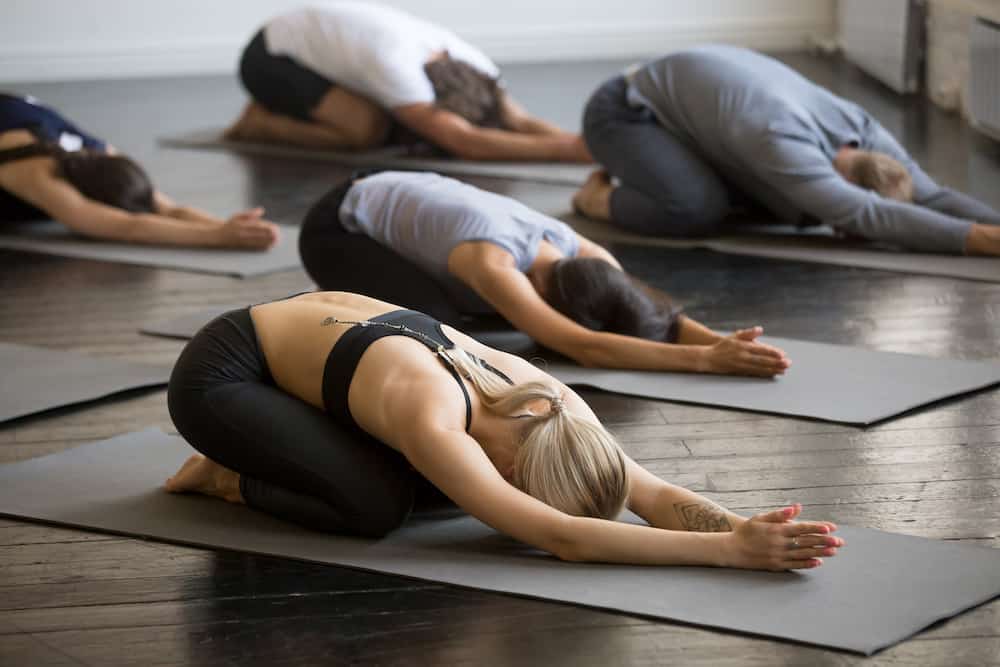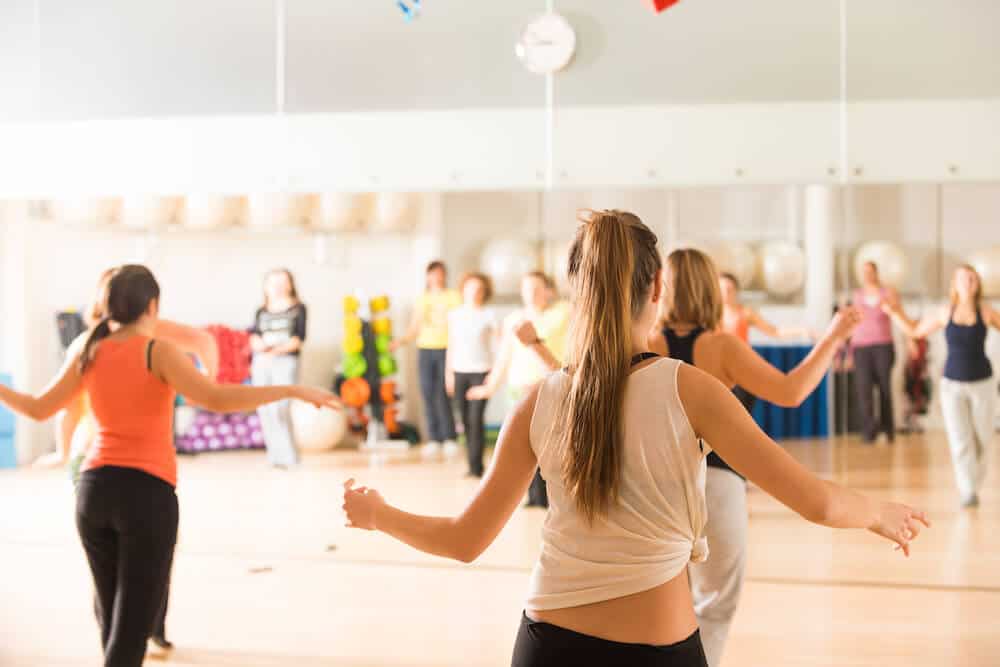Exercise is excellent for your physical and mental health. While it is good for your waistline and can improve your sex life, this is not usually the motivating factor for people to exercise.
Exercising on a regular basis gives you a sense of wellbeing. It boosts your energy levels, helps you sleep better, sharpens your mind and helps you to relax. Being active results in you feeling more positive about life. It is also helps you deal with the more common mental health challenges.
Benefits of exercise for good mental health
You do not have to be obsessed with fitness for it to have a positive effect. When you exercise regularly it boosts your mood and relieves stress. Exercising has a profound positive impact on anxiety and depression. Getting active helps you recover from other mental health conditions. It also releases chemicals such as serotonin and endorphins into your body that will boost your mood. You can use exercise as a tool to help you feel better no matter how old you are or your fitness level.
When you exercise, your hippocampus increases in size which can give your memory a boost. It also improvs the connections between your brain and nerves to protect it against disease and injury.
The following are three of the more common mental health conditions exercise can benefit:
- Depression and Anxiety. There are many studies about the positive effects of exercise for depression and anxiety. One 2019 study found that walking for an hour or running for 15 minutes daily could reduce the risk of depression by 26%. Exercising diverts your attention from negative thoughts so you feel better about the world. Not only does regular exercise help relieve the symptoms of depression and anxiety, it can prevent the symptoms returning.
- Stress. When you feel stressed, all the muscles in your body tense up and cause headaches or neck or back pain. Stress can also cause other physical symptoms such as diarrhea, muscle cramps, insomnia, pains in the stomach and chest pain. Worrying about these sorts of symptoms only increases your stress. So it becomes a vicious cycle of worry. Exercising is a good way to break this cycle. It releases the tension in your body and mind.

How much exercise benefits your mental health?
Mental health challenges can leave you lacking the motivation to exercise. This is normal for anyone struggling to cope. Try making exercise a part of your everyday routine. Choose something you enjoy. Ask a friend or family member to exercise with you. Even mix up your exercise regime from time-to-time to keep it interesting.
Recommendations say you should exercise at least 30 minutes a day most days of the week. If this sounds unachievable, start with one or two sessions a week and build it up to more gradually. You can also do a few 10 or 15 minute sessions throughout the day when you struggle to find the time or 30 minutes is too much when you first start.
Here are eight of the best exercises to improve your mental health. But make sure you consult your doctor before starting any new exercise regime.
1. Go for a walk
Going for a walk is an age old recommendation to relieve the symptoms of anxiety, stress and depression. It clears your mind and lifts your mood so you have better clarity.
You can take a walk anywhere at any time. Go for a walk during your lunch break, or before or after work. Take your dog with you or arrange to walk with a friend or a family member. Walking is a great low impact way to start exercising to improve your mental health.
Do not aim high when you first start or it could prevent you from walking at all. Aim small in the beginning. Just 10 minutes can be beneficial and build it from there.
Low impact exercise can be a good choice when you have other health conditions or suffer with panic attacks that prevent you from taking part in more high intensity activity. The added bonus of walking is it is also good for your physical health.

2. Take up running
Take up running to improve your mental health. A sprint or jogging session clears your mind. Physical exercise can be as an affective as an antidepressant according to research. It promotes the growth of neurons in your brain and relieves the symptoms of depression and other mental health disorders. Not only is it good for your mental health, it burns off calories, reduces cravings for food and decreases the risk of heart disease.
Running also improves your mood as it causes lasting changes to your brain’s neurotransmitters, such as serotonin, which makes you feel good. Not only that, the repetitive nature of running has a meditative effect.
3. Hiking in nature
Hiking in nature is good for your mental health. The natural environment has a calming effect as you enjoy your surroundings and get out into the clean, fresh air. Spending time in nature can reduce your anxiety and stress.
A 2009 study found that people who spent at least 20 minutes hiking in nature had lower stress levels than those exercising in the city. And another study discovered that walking in nature for 50 minutes reduced anxiety and improved people’s memory.

4. Take up yoga
Take up yoga. Its gentle movement is soothing. Yoga helps you get in touch with yourself with a focus on your breathing. This brings you into the present moment and triggers a parasympathetic response from your nervous system which helps you feel calmer.
Practising yoga is good for you physically, emotionally and mentally. Along with the breathing techniques, you put your body through a different form of movement which helps you see the world from a new perspective. It is also good for improving your problem-solving abilities.
Yoga is not about how good you are at the poses but how it makes you feel. It also has a positive effect on mental health conditions such as stress, depression and anxiety. Practising yoga is good for your overall health and wellbeing.
5. Go for a swim
Head to your local swimming pool or to the beach and go for a swim. Better yet if you have a swimming pool get out into it. Just a 10 minute swim every day can boost your mental health. It is also good for your physical health.
Sure, it can be difficult motivating yourself to go for a swim but think about how good you will feel afterwards. Swimming boosts your mood and clears your mind so you feel ready to take on any challenges that cross your path. But if swimming is not your thing, try something else.

6. High-intensity workouts
A high-intensity work out can be good for getting you out of your headspace for a while so you stop stressing out. Instead of worrying about life’s challenges, you focus your energy on reaching an exercise target. It gives you the opportunity to take a break from what is going on in your head. And chases your worries and negative thoughts away for a while. The bonus is it is also good for your physical health. Best of all you get a hit of endorphins that help you feel good as you focus on something positive.
7. Take a dance class
Take a dance class or dance like no one is watching in your living room. There is nothing more uplifting than dancing to music you love. Dancing can improve your self-esteem, relieve stress and boost your self-confidence.
Lose yourself in the rhythm of the music and you will experience an amazing sense of relief and freedom from your mental health challenges. Dance is not difficult. You just need to move to the music. It does not matter if you think you cannot dance. Just move to the rhythm. And you do not need any equipment. The best thing is there is no need to leave home. But you can always find a dance class and join in with others. Try learning Latin, jazz or ballroom dancing.

8. Get out on your bike
Cycling can be exhilarating when you feel the wind blowing through your hair on a country road or in hilly country. It clears your mind as it blows the cobwebs and worries away.
When feeling stressed, anxious or depressed, you can often hold your breath which can cause your breathing to be shallow and erratic. Getting out on the bike means you have to focus so you need to relax your breathing to concentrate on what you want to achieve. Cycling helps you to relax.
Cycling lifts your mood. It releases your happiness hormones and clears your mind of negative thoughts. It also increases your resilience, motivation and confidence. What a great way to release any tension.
If you do not have a bike or the confidence to cycle, take a spin class at your local gym. Riding a bike has so many physical and positive benefits.

We are here to help
When mental health issues affect you, they may be hard to overcome. Dealing with the challenges of mental health is tough. It can be difficult to find the motivation to exercise to help you feel better. Even when you have support, you may feel people do not really understand or it is not enough. And when you are taking medication, sometimes you may need something more or to clear your head.
If you are struggling, consider reaching out. When you are not coping, contact us to find out how we aim to help get your life back on track. But if you reach a crisis point, call us immediately. We are here to help support you through a crisis and we may be able to help you quickly deal with things better.
We can work with you over the phone, via Skype or in our Spas. Book in today for my Emotional Empowerment Program. I have an introductory offer for just $79 so you may start taking back control of your life. We aim to support you to help you cope with any mental health challenges. Our help may alleviate the effects of mental health issues so you look forward to a life filled with happiness and joy.
Let me help alleviate the effects of mental health issues
My Emotional Empowerment Program has helped many people like you deal with all types of mental health challenges for more than a decade. We may help you move through and deal with depression, stress or anxiety which may be stopping you from living your life fully. My aim is to help you replace mental health symptoms with a new hope for the future filled with happiness, peace and contentment in weeks not years. Listen to what Ashlee has to say about my program after only a few sessions.

